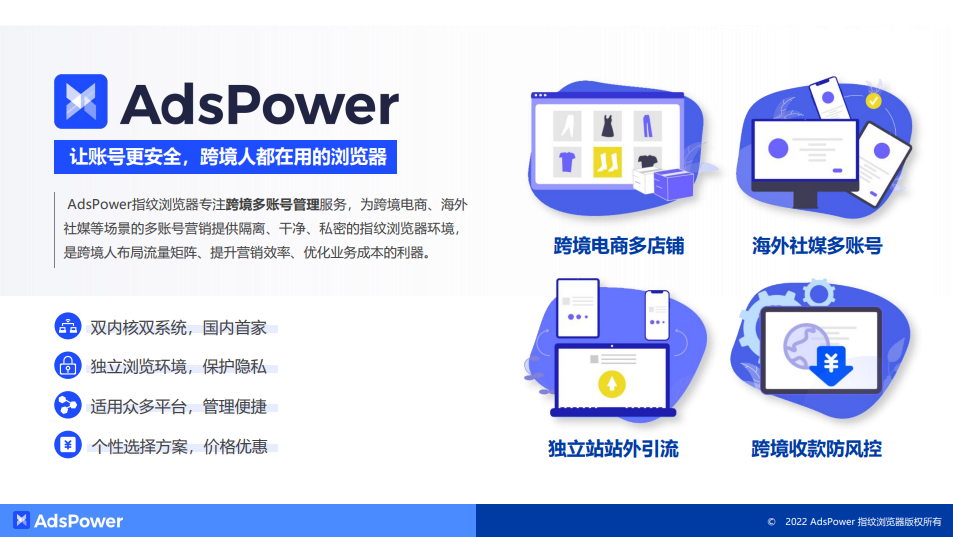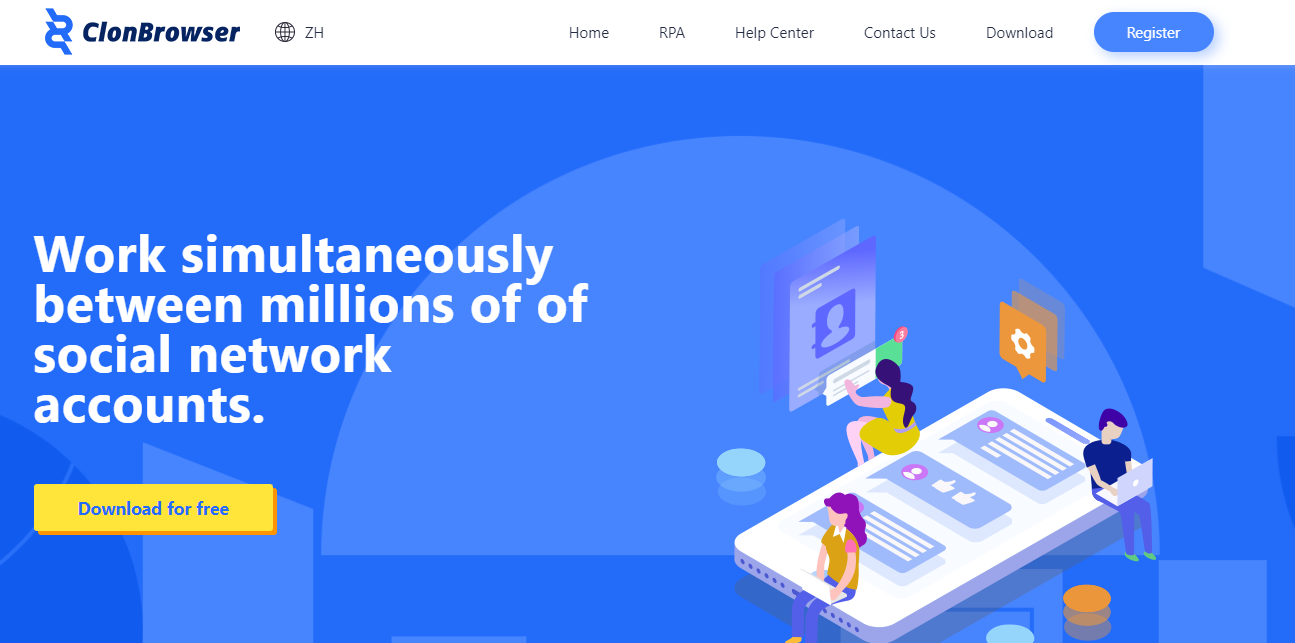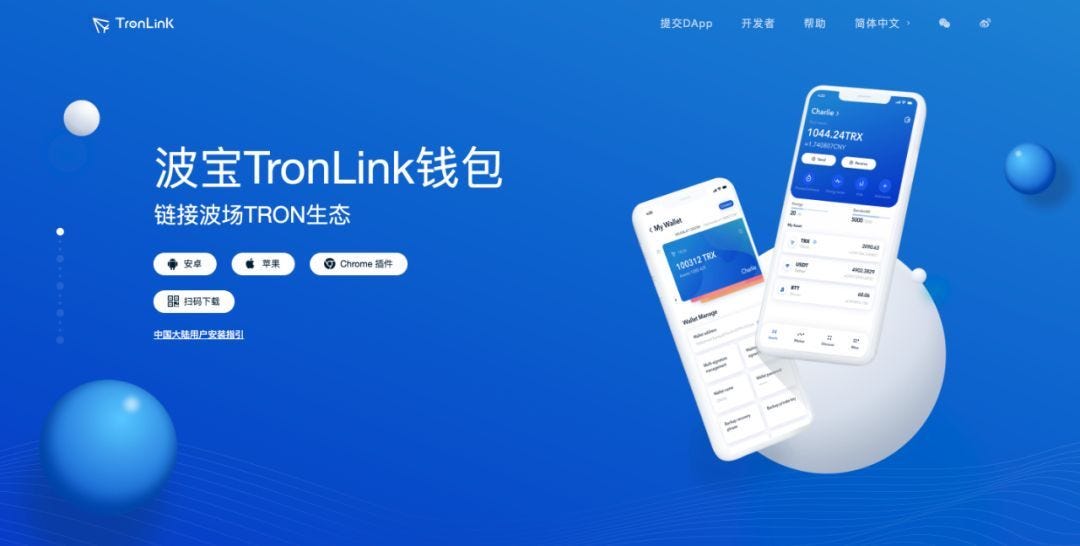
What is proxy IP, how to use proxy IP?
Proxy IP is a technology that transfers data traffic through the server, which allows the user's real IP address to be hidden and replaced with the IP address of the proxy server.
read more
V2ray accesses Socks5 static residential proxy
v2ray is a very popular network protocol software, it usually supports VMess, vless, Trojan, today we will introduce Socks5, an encryption protocol about proxy IP
read more
Use Socks5 static residential proxy in local browser
After connecting to a Socks5 static residential proxy server in a local environment, your web traffic is routed through another IP address, thus hiding your real IP address.
read more
How to use Python3 crawler proxy IP
This article introduces in detail that using proxy IP can make your Python3 crawler more stealthy when crawling website data, avoid frequent requests from being blocked by IP, and introduce the request library
read more
CentOS7 builds Socks5 proxy server
The main difference between data center IP and residential IP lies in their use scenarios and distribution methods, the purposes and network conditions they serve, and the bandwidth and delay.
read more
26 commonly used fingerprint browsers
Fingerprint browser refers to the use of modern browser features, such as User-Proxy, Accept-Encoding, Language, Screen, Time zone and other information
read more
Which fingerprint browser is easy to use?
Fingerprint browsers, also known as anti-association fingerprint browsers, are browsers that identify and track users' browsing behaviors by collecting users' browser fingerprint information. browser fingerprinting
read more
How to buy proxy IP with USDT?
When buying a proxy IP, buy some USDT on a cryptocurrency exchange or an OTC platform; find a reliable proxy IP provider and check out their information about usage
read moreComplete List of Proxy IP Reviews
The list is evaluated by region, type, agency, and you can access it according to the program you need to know!
common problem
Here is a list of all knowledge about static residences, data centers, rotating proxies, residential proxies, mobile 4G proxies and related knowledge and usage plans! The questions listed are some of the frequently asked questions!
What is a static residential proxy?
The scok proxy IP blog collects residential IPs from ISPs and uses them for business purposes rather than private residences. Targeted websites often recognize these IPs as static residential proxy IPs, even though they are actually hosted on servers.
What is a rotating proxy?
You configured automatic IP rotation in the proxy manager, the rotating proxy will give you a new IP address. IP addresses can be rotated based on a predefined period of time (seconds/minutes), after a certain number of requests, or once the used IP is no longer available.
What are the advantages of static proxies?
Static proxies offer many advantages. They perform faster because there is only one "hop" between the requester and the target website. One of the biggest advantages is the option to keep "for life" IP - It's yours for as long as you need it.
What are the disadvantages of static proxies?
Static proxies also have some disadvantages. Depending on your requirements, the supply of static IP addresses may not be able to meet all geographical needs of data scraping. Some shopping sites, like Amazon, block static IP addresses that send too many requests.
What are the advantages of rotating proxies?
Rotating proxies have many advantages.
First, Switch Proxy uses data from millions of homes and mobile devices IP address. This enables geolocation down to the city/state level.
Second, the combination of IP switching plus legitimate IPs from residential/mobile devices makes switching IPs very difficult to detect.
What are the disadvantages of rotating proxies?
There are three main disadvantages of rotating proxies.
Rotating proxies are slower than static proxies. When the gateway proxy server is required to assign a new IP There is an extra "hop" in the process of addressing.
IP address pools (residential/mobile) typically have lower bandwidth than data centers or ISP proxies.
Finally, rotating proxies is usually more expensive because proxy providers must procure and maintain millions of IP addresses.
What is a mobile proxy?
The mobile proxy network is assigned by the mobile operator to the real mobile IP Construct. These IPs are shared by real users in the mobile network, so you can use 3G/4G Mobile Connections Connect to real mobile connections in every country and city around the world, this allows you to view the web undetected like any real mobile user
Why use a mobile proxy?
mobile device IP is generic and can support use cases that can benefit from crowdsourcing, and GPS sensitive data. Requests made via mobile devices are difficult to track or detect, which is a major advantage for companies looking to conduct market research and other business activities.